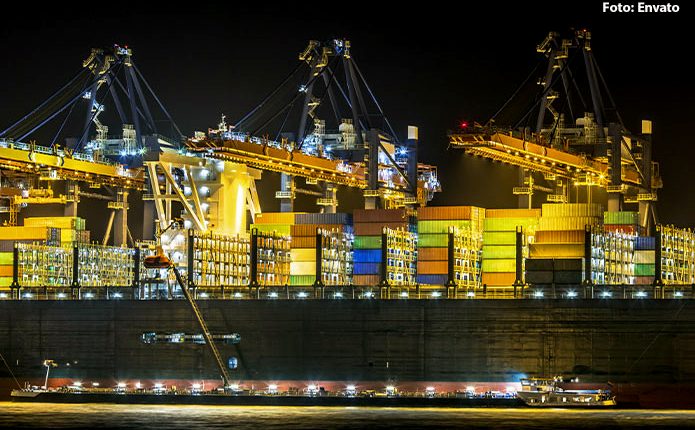
58% of exporting companies highlight trade facilitation measures to face pandemic.
The National Confederation of Industry (CNI) consulted 221 exporters of all sizes on the priorities on the Covid-19 pandemic agenda. More than half (58%) of them indicated the need for measures to facilitate and reduce bureaucracy in foreign trade and 48% believe that the logistics and infrastructure of exports and imports should be the government’s priority agenda at this time.
CNI’s Director of Industrial Development, Carlos Eduardo Abijaodi, recalls that Covid-19 represents a serious global threat, with significant impacts also on international trade. In these first months of the crisis, the customs and trade departments of the countries face the challenge of being more agile in customs controls, authorizations and licenses for the clearance of products and equipment.
In Brazil, the National Committee for Trade Facilitation (Confac) was deactivated in January 2019. The Committee brings together more than 20 federal agencies, including ministries and regulatory agencies, responsible for Brazilian foreign trade, in addition to the private sector, to formulate, implement and coordinate measures to facilitate foreign trade. Its main function is to facilitate and de-bureaucratize export and import operations as provided for in the World Trade Organization (WTO) Trade Facilitation Agreement, which Brazil joined in 2017.
“In this moment of serious crisis, the lack of an institutional framework such as Confac can hinder the agile and coordinated adoption of measures to alleviate the bottlenecks that affect the trade in medicines, equipment and supplies essential to combat the pandemic. The Committee also has a fundamental role to avoid interruptions in the supply chain and to avoid creating new rates, tariffs and charges that burden these operations ”, says the director of CNI.
Abijaodi warns of the risk that each agency or regulatory agency will adopt isolated and disjointed processes to combat the effects of the pandemic. According to him, coordination and sharing within the scope of the Committee could speed up and standardize the models of authorizations and consents that the agencies are implementing in this period of crisis, for example.
“The proper functioning of Confac was already necessary to guarantee Brazil’s progress in the area of trade facilitation. Now it becomes more urgent in the face of this crisis. And it is worth remembering that the existence of the Committee is an obligation that the country assumed at the WTO ”
Government received six letters on the need to reactivate Trade Facilitation Council
The Business Coalition for Trade and Barriers Facilitation (CFB), secretariat by the CNI and composed of more than 80 sectoral associations of industry, agribusiness and services, and by the Federations of Industries in the states, has already requested the restoration of Confac to the Ministry of Economy for six letters to the government.
For Confac to act again, it is necessary to publish a presidential Decree and to approve the Committee’s bylaws and composition by means of a Resolution by the Chamber of Foreign Trade (CAMEX).
There are two international agreements, of which Brazil is a party, which deal with the reduction of bureaucracy and costs in export and import operations. They are: the WTO Trade Facilitation Agreement, in force since 2017, and, more recently, after approval by the National Congress, the International Convention for the Simplification and Harmonization of Customs Regimes (Revised Kyoto Convention) of the World Customs Organization (OMAN).
Source: www.comexdobrasil.com